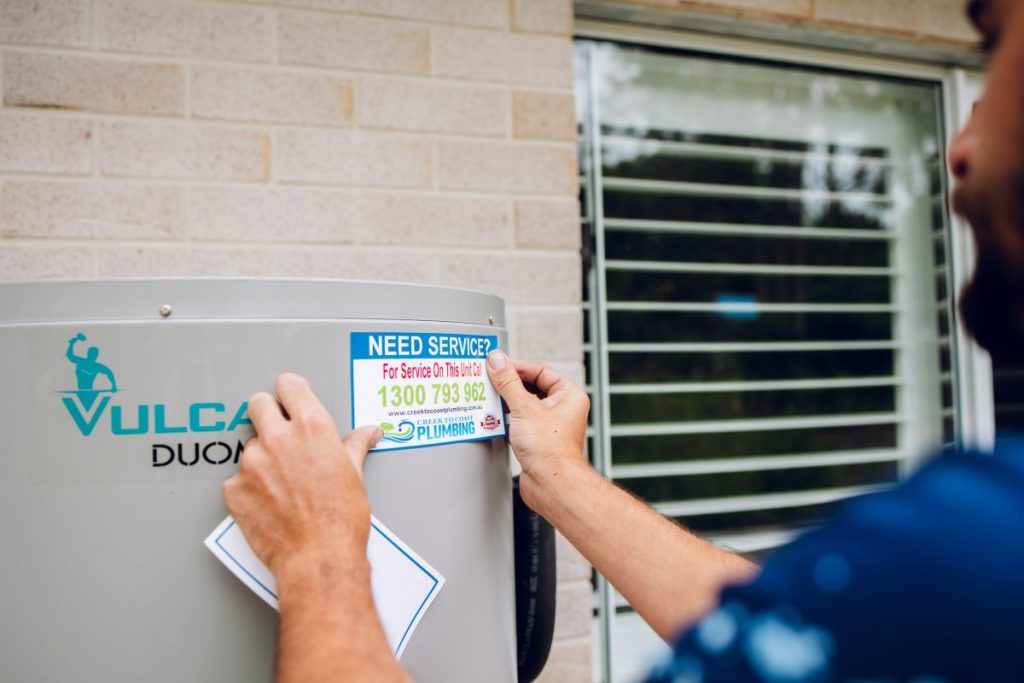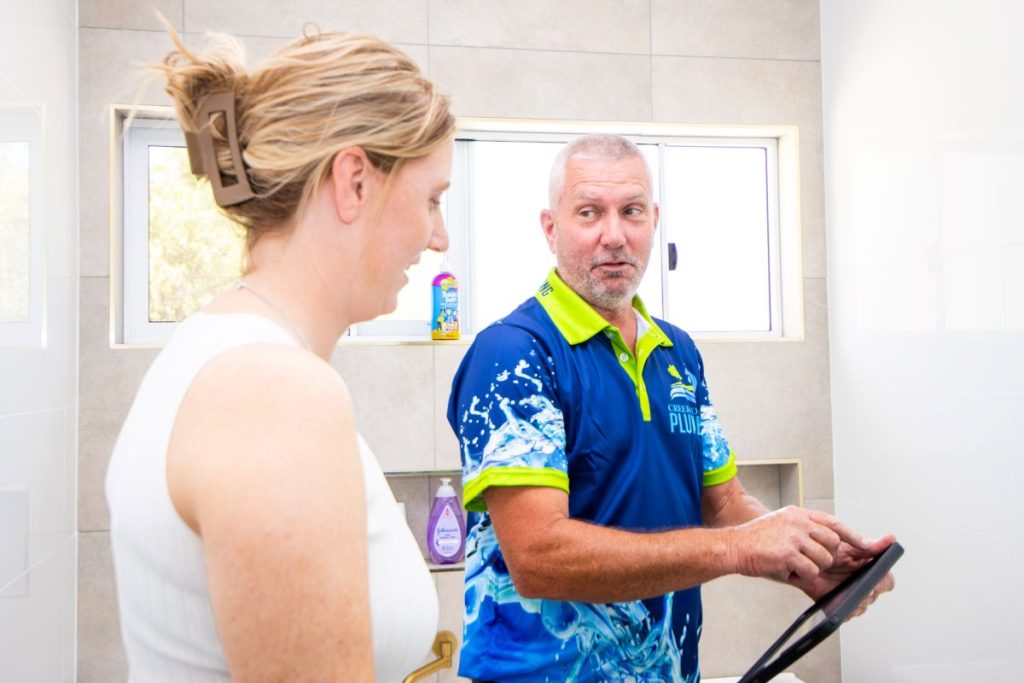Hot water systems work tirelessly behind the scenes, ensuring that you have access to hot water when you need it most. Like all household appliances, these systems are not built to last indefinitely and have a specific operational lifespan. Being aware of the warning signs that indicate your hot water system may require replacement is essential. This understanding can help you avoid unpleasant situations such as unexpected cold showers, potential water damage to your property, and expensive emergency repairs that can disrupt your daily routine.
What is the typical lifespan of a hot water system? The longevity of these systems varies significantly based on the type you own and the level of maintenance you perform. By conducting regular inspections and providing appropriate care for your system, you can significantly extend its lifespan while ensuring it operates at optimal performance levels.
Let’s delve deeper into the specifics to gain a clearer understanding.

Discover the Lifespan of Different Hot Water Systems
Here’s an overview of what you can generally expect regarding the lifespan and performance of the most common hot water systems found in Queensland homes:
Electric Storage Hot Water Systems: Lifespan and Essential Maintenance
- Lifespan: 8–12 years
- Reasons for Failure: Common issues, including internal corrosion, depleted anode rods, and sediment buildup can hinder performance.
- Signs to Monitor: Keep an eye out for rusty or discoloured water, leaks at the base of the unit, or delays in heating times, all of which may indicate serious underlying issues.
Gas Storage Hot Water Systems: Key Insights and Lifespan
- Lifespan: 8–12 years
- Reasons for Failure: Similar to electric systems, these units can fail prematurely, particularly in coastal areas where salty air can accelerate wear.
- Signs to Monitor: Watch for pilot light issues, lower water temperatures, or unexpectedly high gas bills, which may suggest inefficiency.
Instant Gas Hot Water Systems (Continuous Flow): Performance and Longevity
- Lifespan: 10–15 years
- Reasons for Longevity: These systems lack a storage tank, making them less susceptible to corrosion, which generally results in fewer failures over time.
- Signs to Monitor: Be alert for inconsistent water temperatures, ignition problems, or a noticeable decrease in water flow, which may indicate the need for servicing.
Electric Instant Hot Water Systems: Common Lifespan Issues
- Lifespan: 10–15 years
- Common Issues: Failures frequently stem from malfunctioning heating elements or thermostats, which can severely impact system performance.
- Warning Signs: If your water alternates between hot and cold or takes longer to heat up, these could signal underlying issues requiring immediate attention.
Heat Pump Hot Water Systems: Efficiency, Lifespan, and Performance
- Lifespan: 10–15 years
- Efficiency: These systems are highly energy-efficient but can be affected by climate and installation location, which ultimately impacts their performance.
- Signs of Trouble: Signs indicating potential problems include excessive noise during operation, prolonged heating cycles, or increasing energy bills, all of which suggest that an inspection is needed.
Solar Hot Water Systems: Lifespan and Performance Indicators
- Lifespan: 15–20+ years for solar panels, 8–12 years for the storage tank
- Note: Typically, the storage tanks deteriorate before the solar collectors, impacting the overall system’s efficiency.
- Signs to Monitor: Be vigilant if the water fails to heat sufficiently on cloudy days, or if you observe rusty water or problems with booster operations.

Recognising the Warning Signs of a Failing Hot Water System
Even before your hot water system reaches its expected lifespan, it may start to exhibit signs of distress. Identifying these warning signs early can save you from more significant problems down the line. Common issues to look out for include:
- Fluctuating Temperatures
If your water takes longer to heat or depletes faster than it used to, it may be time to assess the health of your system. - Rusty or Discoloured Water
This often indicates corrosion within the tank or a failing anode rod, both of which require immediate attention to avert further damage. - Unusual Noises
Popping, gurgling, or banging noises during heating cycles typically suggest sediment accumulation inside the tank, which can undermine efficiency. - Leaks or Pooling Water
Even a minor drip can indicate that your tank may be developing cracks or that valves are starting to fail, prompting a prompt inspection. - Higher Energy Bills
An aging unit often struggles to provide sufficient hot water, causing it to work harder and leading to increased energy costs.
Understanding How Seasonal Changes Influence Hot Water System Performance
In Queensland, the shift from warm to cooler months can pose significant challenges for older hot water systems. As outdoor temperatures fall, these systems must work harder to maintain the desired water temperature. Systems approaching the end of their operational lifespan might even experience complete failure during this critical time.
Determining the Optimal Time for Hot Water System Replacement
If your hot water system exhibits any of the following characteristics, it may be an ideal moment to consider replacement:
- Over 10 years old
- Frequently experiencing breakdowns
- Failing to meet your household’s hot water needs
- Exhibiting visible signs of wear or corrosion
If you notice these indicators, it could be the perfect time for an upgrade.
At Creek to Coast Plumbing, we don’t merely replace your unit; we also evaluate a variety of factors, including your family size, water usage habits, energy preferences, and the layout of your property. This thorough assessment ensures that we recommend the most efficient and cost-effective hot water system tailored specifically to your requirements.

Selecting the Ideal Hot Water System for Your Unique Household Needs
Based on your specific requirements and household dynamics, our expert team may recommend:
- Electric or Gas Storage systems, celebrated for their reliability and affordability, making them particularly suitable for traditional homes.
- Continuous Flow (Instant) systems, perfect for smaller homes or households with lower hot water consumption, providing hot water on demand.
- Heat Pumps that deliver substantial energy savings, especially advantageous in warmer climates, assisting in lowering your energy bills.
- Solar Hot Water systems, engineered for long-term cost savings and environmental sustainability, promoting an eco-friendly lifestyle.
Additionally, we assess whether the current location of your hot water system is optimal or if relocating it could enhance performance and improve overall efficiency.
Take Advantage of the Opportunity to Upgrade Your Hot Water System
Replacing your hot water system at the appropriate time is not solely about preventing system failure; it also presents a chance to upgrade to a more reliable, energy-efficient model that better aligns with your lifestyle and needs.
If your unit is exhibiting signs of aging or if you are uncertain which system would best suit your home, the licensed plumbers at Creek to Coast Plumbing are here to provide expert guidance tailored to your specific circumstances.
The Article: Hot Water System Lifespan: A Guide for Queensland Homes first appeared on https://writebuff.com
The Article Hot Water System Lifespan Guide for Queensland Homes Was Found On https://limitsofstrategy.com

